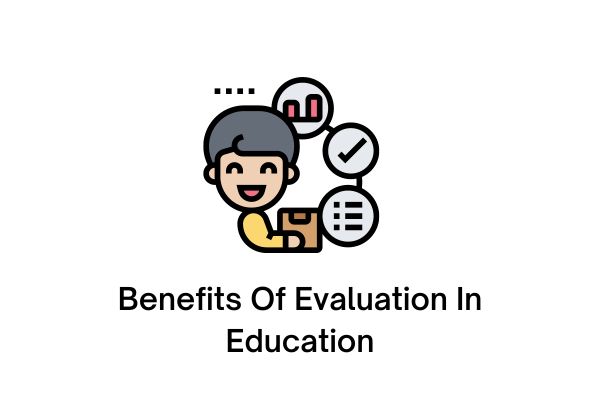What are the benefits of evaluation in education? Evaluation plays a crucial role in education as it helps measure the effectiveness of teaching and learning methods, identifies areas of improvement, and provides valuable feedback to both teachers and students. By assessing the progress and performance of students, evaluation promotes academic excellence and ensures that educational goals are met. In this article, we will delve into the benefits of evaluation in education and explore how it enhances the learning experience for students.
1. Identifying Strengths and Weaknesses
Evaluation allows educators to identify the strengths and weaknesses of individual students. By assessing their performance through various evaluation methods such as tests, assignments, and projects, teachers can pinpoint areas where students excel or struggle. This knowledge helps tailor instructional strategies to address specific needs, ensuring that students receive the necessary support and guidance to succeed.
2. Encouraging Continuous Improvement
Through evaluation, students receive regular feedback on their academic performance, motivating them to strive for continuous improvement. Constructive feedback helps students understand where they stand, what they need to work on, and how they can enhance their learning capabilities. This cycle of assessment and feedback promotes a growth mindset, instilling in students the willingness to learn and develop their skills.
3. Enhancing Self-Reflection
One of the significant benefits of evaluation is that it encourages self-reflection among students. By evaluating their own work, students critically analyze their strengths and weaknesses. This process of self-assessment fosters self-awareness and metacognition, enabling students to better understand their learning styles, preferences, and areas for improvement. Students become active participants in their education, taking responsibility for their own progress.
4. Benchmarking Progress
Evaluation provides a benchmark to assess students’ progress over time. By comparing their current performance with previous assessments, students can gauge their improvement and track their learning journey. Additionally, it enables educators to measure student growth and determine if the teaching methods employed are effective. Benchmarking progress empowers students, as they can see tangible evidence of their achievements and celebrate their successes.
5. Informing Instructional Strategies
Evaluation serves as a valuable tool for educators to adapt and refine their instructional strategies. By analyzing student performance data, teachers gain insights into which teaching methods are most effective and which may require modification. Evaluation enables them to identify gaps in knowledge and restructure lesson plans to ensure optimal learning outcomes. This continuous refinement of instructional strategies leads to enhanced engagement and better academic results.
6. Fostering Accountability
Evaluation promotes accountability among both students and educators. Students are held accountable for their learning, as their performance is assessed and measured against predetermined standards. This motivates them to take ownership of their education and strive for excellence. Similarly, teachers are accountable for the quality of their instruction, as evaluation provides a means to assess their effectiveness. This fosters a culture of accountability within the education system, ensuring that all stakeholders are actively engaged in the learning process.
7. Identifying Learning Gaps
Evaluation helps identify learning gaps, allowing educators to intervene early and address any areas of weakness. By regularly monitoring student performance, teachers can identify specific concepts or skills that students are struggling with. This enables them to provide targeted support and remediation to help students overcome their difficulties. Early intervention ensures that students do not fall behind and helps maintain a positive and inclusive learning environment.
8. Promoting Critical Thinking
Through evaluation, students are encouraged to think critically and apply their knowledge in real-world scenarios. Evaluation methods such as essay questions, case studies, and problem-solving tasks require students to analyze information, evaluate alternatives, and make informed judgments. This fosters the development of critical thinking and problem-solving skills, essential for success in higher education and the professional world.
9. Motivating Healthy Competition
Evaluation introduces an element of healthy competition among students, motivating them to perform to the best of their abilities. Through assessments and rankings, students strive to excel and achieve higher grades. This competitive environment encourages students to push their boundaries, explore their potential, and continuously seek improvement. Healthy competition fosters a spirit of achievement and excellence, promoting a positive learning atmosphere.
10. Preparing for Future Success
Evaluation is an essential component in preparing students for future success. By providing feedback and assessment, evaluation equips students with the necessary skills and knowledge to navigate higher education, pursue careers, and contribute to society. It prepares them for higher-level challenges, fosters a growth mindset, and instills a lifelong love for learning. Evaluation ensures that students are well-prepared to meet the demands of the ever-changing world.
In conclusion, evaluation in education has numerous benefits that positively impact both students and educators. It helps identify strengths and weaknesses, encourages continuous improvement, promotes self-reflection, benchmarks progress, informs instructional strategies, fosters accountability, identifies learning gaps, promotes critical thinking, motivates healthy competition, and prepares students for future success. With evaluation as an integral part of the education system, students can reach their full potential, and educators can continually enhance their teaching practices. The benefits of evaluation in education are undeniable, shaping a brighter future for all.
